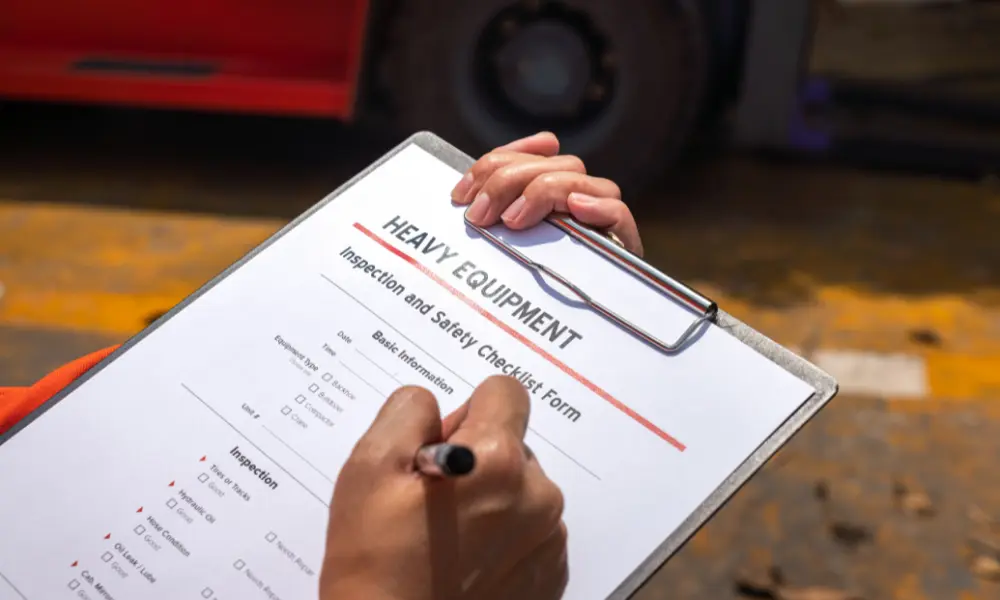Navigating vehicle inspection requirements can be tricky, especially with recent changes in West Virginia. Did you know you only need to get your car inspected every two years now? Understanding the specifics can save you time and money, whether you drive a car, motorcycle, or trailer. Stick around to learn the latest rules and ensure your vehicle meets all inspection standards without any hassle.
Overview of West Virginia Vehicle Inspection
Vehicle inspection in West Virginia is crucial for maintaining safety on the roads and highways. Here, you’ll find information about the purpose behind these inspections and the legal requirements that enforce them.
Purpose of State Inspection
In West Virginia, motor vehicle inspection aims to ensure that all vehicles on the road are safe and in good working condition. This helps prevent accidents and breakdowns, keeping you and other drivers safe.
Inspections check various parts of your vehicle, including brakes, tires, lights, and exhaust systems. Safety is the main focus, making sure every car, motorcycle, and trailer meets the standards set by the state.
Vehicles displaying West Virginia plates, including those with temporary registration, need a valid inspection certificate before traveling on public roads. This inspection must be done every two years following a new law signed by Gov. Jim Justice.
Legal Foundations
Vehicle inspections in West Virginia are governed by the West Virginia State Police under the direction of the Superintendent. The legal framework ensures every vehicle is checked and complies with state safety standards.
HB 2310, the bill signed into law by Gov. Jim Justice in 2023, changed the frequency of inspections from one to two years. This law aims to reduce the burden on vehicle owners while still ensuring safety.
You must still have a valid inspection certificate displayed on your vehicle. The maximum fee for an inspection sticker is also regulated to prevent overcharging. For more details, visit the official inspection procedure.
Inspection Requirements
In West Virginia, all motor vehicles must undergo a thorough safety inspection. This ensures that your vehicle complies with legal standards and is safe to operate on public roads.
Criteria for Passenger Vehicles
Passenger vehicles in West Virginia must meet specific criteria during inspection. You need a valid registration card and certificate of insurance before the test begins. Inspectors check various components such as bumpers, fenders, and the brake system.
The brake system includes checking brake hoses and fluid levels. They will also inspect the exhaust and fuel systems to ensure there are no leaks.
Tires and wheels are examined for wear and tear, and the lights must work correctly. A clear windshield with functional windshield wipers is essential. Finally, the vehicle’s front end and steering components will be inspected for proper alignment.
Criteria for Motorcycles and Trailers
Motorcycles and trailers have specific inspection requirements, similar to passenger vehicles but with some differences. Motorcycles need to have approved safety glass and lighting equipment. The horn and brake system must function correctly.
Trailers, including semi-trailers and pole trailers, must also meet safety standards. Inspectors will check the trailer’s brakes, lights, and hitch mechanisms for secure attachment. The tires and wheels are inspected for appropriate tread depth and overall condition.
Both motorcycles and trailers need a valid registration and insurance certificate before the inspection. Once the inspection is completed, a valid certificate of inspection is affixed.
Equipment and Components Checklist
During the inspection, various pieces of equipment and components are checked for safety. The brake system, including brake lines and hoses, is scrutinized. Inspectors also check the exhaust system for leaks and proper functioning.
Lights are checked for brightness and alignment. The horn and windshield wipers must be in working order. For the fuel system, inspectors look for leaks and proper connections.
Tires and wheels must have the correct tread depth and be free of damage. The front end and steering components are inspected for proper function. Finally, the bumpers and fenders must be securely attached and in good condition.
By ensuring all these components are in good shape, you can drive with confidence knowing your vehicle meets West Virginia’s safety standards.
Inspection Process
Ensuring your vehicle meets West Virginia’s inspection requirements involves multiple steps. These steps include an initial evaluation, a series of detailed tests, and the issuing of stickers and certificates to verify compliance.
Initial Vehicle Evaluation
When you first take your vehicle to an official inspection station, it undergoes a preliminary check. An inspector mechanic will begin by identifying the vehicle and verifying its registration. They will look for obvious external damages and ensure that it is in a suitable condition for a thorough inspection.
Safety devices such as seat belts are checked to make sure they function properly. The condition of tires, lights, and mirrors will be quickly assessed to confirm that they meet basic safety standards. If any major issues are identified during this initial stage, a rejection sticker may be issued, indicating that the vehicle cannot proceed to the next step until necessary repairs are made.
Complete Inspection and Testing
Once your vehicle passes the initial evaluation, it will undergo a complete inspection. This involves detailed checks on various components, including brakes, steering, suspension, and exhaust systems. The inspector will test the effectiveness of your brakes and the alignment of steering mechanisms. They will also examine the vehicle’s frame, windshield, and windows, making sure there are no cracks or other forms of damage.
Special attention is given to lighting equipment, ensuring headlights, tail lights, and indicators are functional. Your vehicle’s seat belts and other safety devices must meet specific standards to ensure passenger safety. If any part fails to meet inspection standards, you’ll receive details on the repairs needed before you can retake the test.
Issuing of Stickers and Certificates
After passing the complete inspection, the inspector will issue an inspection certificate and an inspection sticker. These will be affixed to your vehicle, proving it meets all state safety standards. If your car did not pass, a rejection sticker will indicate the areas that failed and need repair.
You are required to have this inspection every two years according to new laws in West Virginia. The cost for this service is also stipulated, and the maximum fee for an inspection sticker has been set by law. This ensures that your vehicle is always in a passing condition before it hits the road.
Official Inspection Stations
Finding a certified inspection station and knowing who can perform the inspection are crucial steps in getting your vehicle inspected in West Virginia. Here’s what you need to know.
Locating an Inspection Station
When looking for an official inspection station, you will want to find a garage that offers general automotive repair services. These garages must comply with state regulations and provide inspections on various vehicle components.
Many stations offer car inspection services throughout the state. You can identify approved inspection stations that meet the state’s requirements by checking for specific station dimensions and equipment. For example, a one-car inspection station should measure 12 feet by 25 feet and have an approved headlight tester.
Fleet stations available to commercial vehicle owners must also meet specific standards to operate legally. This ensures consistency and reliability in inspections across different kinds of vehicles.
Certified Inspection Mechanics
Only certified inspection mechanics are authorized to conduct official vehicle inspections. These mechanics must follow strict guidelines and thoroughly examine various parts of the vehicle, including safety glass, bumpers, and the vehicle frame.
Certified mechanics must remove the old inspection sticker, verify legal registration, and check the certificate of insurance. They must also examine sheet metal, bumpers, fenders, and the vehicle frame for safety issues.
Certified inspection mechanics help ensure your vehicle meets safety standards set by the state. Their expertise ensures that all inspected vehicles are safe to operate on West Virginia roads.
Compliance and Enforcement
It’s essential to ensure that your vehicle meets West Virginia’s inspection requirements. Adhering to these regulations not only helps with vehicle safety but also avoids legal troubles.
Post-Inspection Obligations
After your vehicle passes the State Inspection, you’re required to display a valid inspection sticker. This sticker should be placed in a visible location on your vehicle. If it’s lost or damaged, you must get a replacement to avoid fines.
Moreover, this inspection compliance means your vehicle’s Legal Registration is up to date. West Virginia now allows inspections every two years, saving you time and ensuring prolonged vehicle safety. Always keep your inspection certificate handy, especially during a traffic stop.
Legal Consequences of Non-Compliance
Failing to comply with inspection requirements can lead to serious issues. If your vehicle doesn’t have a Valid Inspection Sticker, you risk fines or even vehicle impoundment. Law enforcement checks for this during routine stops, making compliance crucial.
The Division of Motor Vehicles or DMV closely monitors inspection records. Vehicles found non-compliant may face registration suspension. Additionally, driving with an expired or missing inspection sticker can lead to penalties, negatively affecting your driving record and insurance rates. Compliance ensures you avoid these legal and financial repercussions.
Special Cases and Exemptions
For some vehicles, West Virginia offers exemptions and special provisions. This includes antique vehicles, as well as specific reciprocity rules for vehicles from other states.
Antique Vehicles and Special Provisions
Antique vehicles in West Virginia have special inspection rules. If your car is over 25 years old and primarily used for exhibitions and parades, it may qualify as an antique. Antique vehicle owners need not undergo the same inspection regulations as newer models. For example, annual safety inspections may not be required for antique vehicles, making it easier for vintage car enthusiasts to enjoy their classic cars.
New vehicle dealers also have specific provisions. They often have leeway to manage inspections, especially when selling or displaying classic and antique cars in their showrooms. If you have questions about whether your vehicle qualifies for an antique status, it’s best to consult the West Virginia State Police’s Motor Vehicle Inspection Manual.
Reciprocity Rules
Reciprocity with West Virginia means that vehicles registered out-of-state could be exempt from local inspection requirements. If you are a new resident, your vehicle may not need an inspection immediately. Instead, you may continue to follow your home state’s rules until your registration period ends. This is especially helpful for those moving or traveling between states regularly.
Special vehicles like commercial trucks or trailers might also have unique rules. They may have separate agreements, especially if they are part of larger fleets managed by companies operating across state lines. For exact details, you can visit the West Virginia DMV’s page on inspection requirements.















